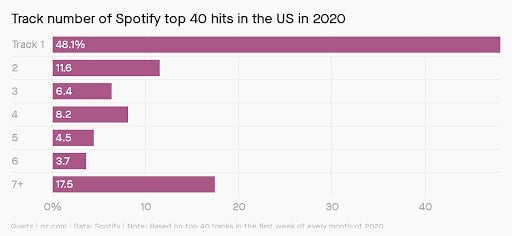ECB steps up, Amazon earnings, poop deterrence
Good morning, Quartz readers!

Good morning, Quartz readers!
Here’s what you need to know
Germany discusses the next stage of lockdown-easing. Chancellor Angela Merkel and state premiers will coordinate nationwide rules, including the resumption of religious services but with possible bans on singing. Scientists have warned that Germany should continue to maintain strict social distancing to keep the transmission rate low.
The European Central Bank could step up further. It could announce an expansion in its relatively modest bond-buying program to keep sovereign borrowing costs low for countries, particularly Italy, whose credit rating was just downgraded to a notch above “junk” by Fitch.
Amazon reports earnings… The trillion-dollar company is one of the few businesses that has emerged stronger during the pandemic, as people ordered groceries and household supplies online, though rising expenses linked to the company’s massive hiring spree could also eat into its bottom line.
…And Gilead gives an update. The US biopharmaceutical company will announce earnings, shortly after it said that the preliminary results of a trial using remdesivir to treat coronavirus looked positive.
Norwegian Air staves off bankruptcy. Bondholders will vote on a plan to swap $1.2 billion of debt into equity, or the airline faces running out of cash by the middle of next month.
Elon Musk ranted against lockdowns. On Tesla’s earnings call, the CEO, who has previously said that the panic over the pandemic was “dumb,” called California’s shelter-in-place orders “fascist.” Tesla’s factory in Fremont has been closed for over a month.
Charting top 40 hits on Spotify
Spotify data suggest that Track 1 hits are increasingly the norm (✦ Quartz member exclusive). Those tracks are usually singles, which are counted as Track 1 until the album is released later.
That tracks: People are no longer forced to buy music in bundles, and can pick and choose their favorite songs when streaming. As a result, many musicians are releasing more singles prior to album releases, according to a report from Rolling Stone. But it could also be a statistical blip—or just a result of viral TikTok dance challenges.
Local fitness studios are making it work. Client relationships—even virtually—are helping them compete with the big names.
Groceries may win out over restaurants in the long-term. Making meals at home is cheaper and, if workers are already home, easier to pull off after a long day.
You can read this email—and retain it—in less than a minute. You just need to know how to speed-read correctly.
We’re obsessed with bougainvillea
Bougainvillea is the world’s prettiest invader. It’s the official flower of Grenada, Guam, and cities across China, Taiwan, Malaysia, the Philippines, California, and Japan—but it’s native to none of them. The cheery harbingers of summer actually originated in South America, and went worldwide shortly after the first woman to circumnavigate the globe stumbled upon them. Let your knowledge bloom with the Quartz Daily Obsession.
Surprising discoveries
You can now visit the Met through your Switch. The New York museum is making its artworks available for “owning” and viewing inside Nintendo’s Animal Crossing: New Horizons game.
Crocs are cool (again). The controversial shoe is having a moment as people don’t see friends and confine their movements to the backyard during the pandemic.
Sweden has a smelly idea for social distancing… The city of Lund is considering dumping chicken poop in a park to prevent people from gathering for today’s Walpurgis Night festivities.
…While a Spanish beach tried bleach. A local official in Cádiz apologized for spraying diluted disinfectant to deter crowds from going to a beach.
Sicily is subsidizing your travel costs. The tourism-dependent Italian island said it will cover half of people’s flights if they book a trip there after borders re-open.
You asked about internet access
How will the pandemic push governments around the world to acknowledge that access to the internet is integral and imperative to basic human needs?
Glad you asked, Melvin. We tapped Quartz senior reporter Ephrat Livni for her take on how perception of internet as a necessary utility has changed. “The pandemic has made it widely apparent that internet access is a class issue. Although the United Nations in 2016 declared that connection is a basic human right, not just a luxury for the rich, it’s clear now that those who can work or study from home are the fortunate ones.
“In the US, major wireless providers have made much ado about connecting the indigent amid the pandemic and offering reduced pricing. It’s nice but the generosity only highlights the problems with private systems. It’s impossible to say what various authorities will focus on next, but there seems to be increased awareness of our interconnectedness in physical space and the need for equality in digital space.”
Our best wishes for a productive day. Please send any news, comments, practical footwear, and Italy vacation plans to [email protected]. Get the most out of Quartz by downloading our app on iOS or Android and becoming a member. Today’s Daily Brief was written by Isabella Steger and edited by Mary Hui.
